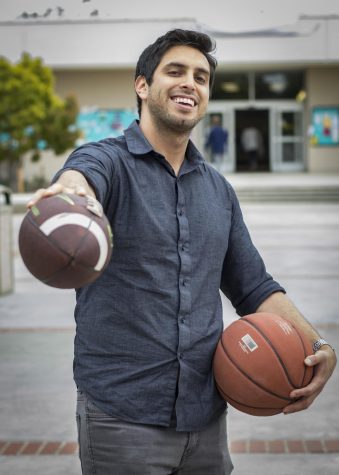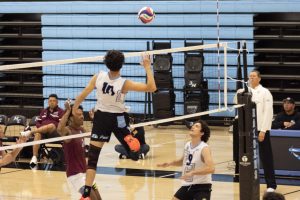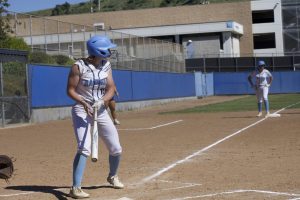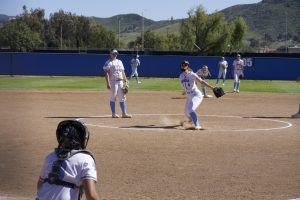Xtreme Raider Challenge and Be The Match come together to provide hope for cancer patients waiting on a bone marrow transplant
Jeff Kreil, Kinesiology and Health Instructor, hosts Moorpark College’s seventh annual Xtreme Raider Challenge. Xtreme Raider Challenge is an obstacle course race that’s helped raise blood marrow donors since 2014. Photo credit: Shariliz Poveda
December 9, 2018
Mark Clark, the athletics groundskeeper for over 22 years, arrived at the Moorpark College football stadium full of emotions. He couldn’t believe he saw over 150 athletes participating in a benefit obstacle course geared toward saving his life. Clark was recently diagnosed with leukemia.
The Fitness Learning Experience (FLEX) Club transformed its annual Xtreme Raider Challenge into a benefit for him and other patients of the disease by partnering with Be the Match. The Raider Challenge is one of FLEX’s biggest fitness events that ranges over a mile long with approximately 20-obstacles along the course. Participation in the event raises money for the club, future events, and helps blood cancer patients through the registry.
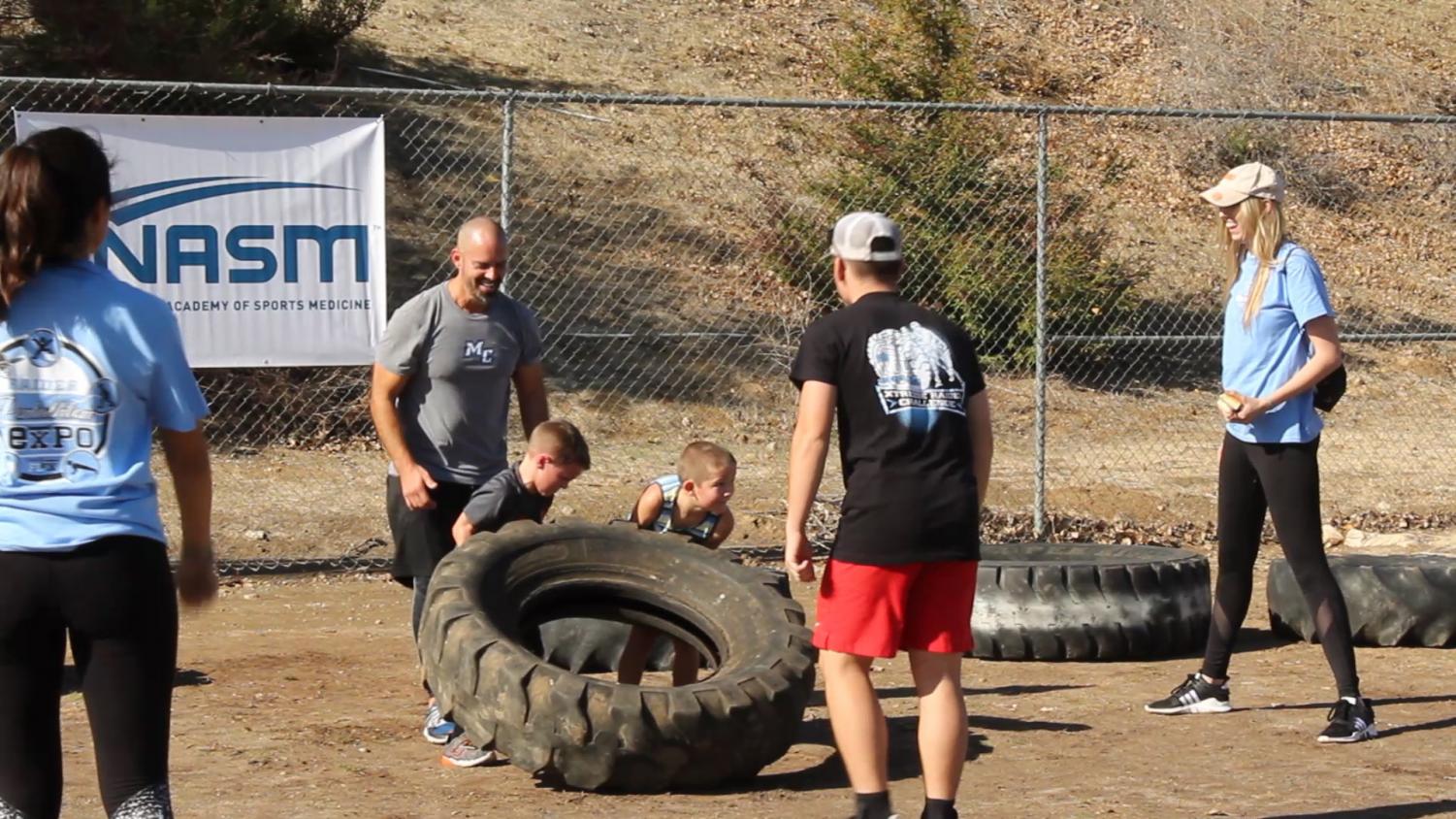
Talking with Clark, it’s easy to see he’s still in lively spirits and jokes with everyone he meets. He discussed how he can’t cook fast enough to supply the demand of his famous Christmas tamales or how he refused to lift the giant tractor tire for fear a little girl would show him up right after he attempted. He joked, he’d rather eat 400 lbs. then try to lift it. You can’t tell three months ago he was diagnosed with a deadly cancer that threatens his immune system and causes rapid cell build-up in both his blood and bone marrow.
“We can sit and cry in the corner, or we can stand up and fight,” Clark said. “Within a five-year period, we should be in remission and kicking life in the ass again.” And then he joked, “Then I’ll get hit by a bus.”
Clark doesn’t woefully sulk about the fragility of his health. He doesn’t fear death, if it’s his time to go, he accepts that’s God’s plan and has no quarrel with the Big Man’s decision. Clark is just grateful he’s alive and able to see the support he’s gotten since his diagnosis.
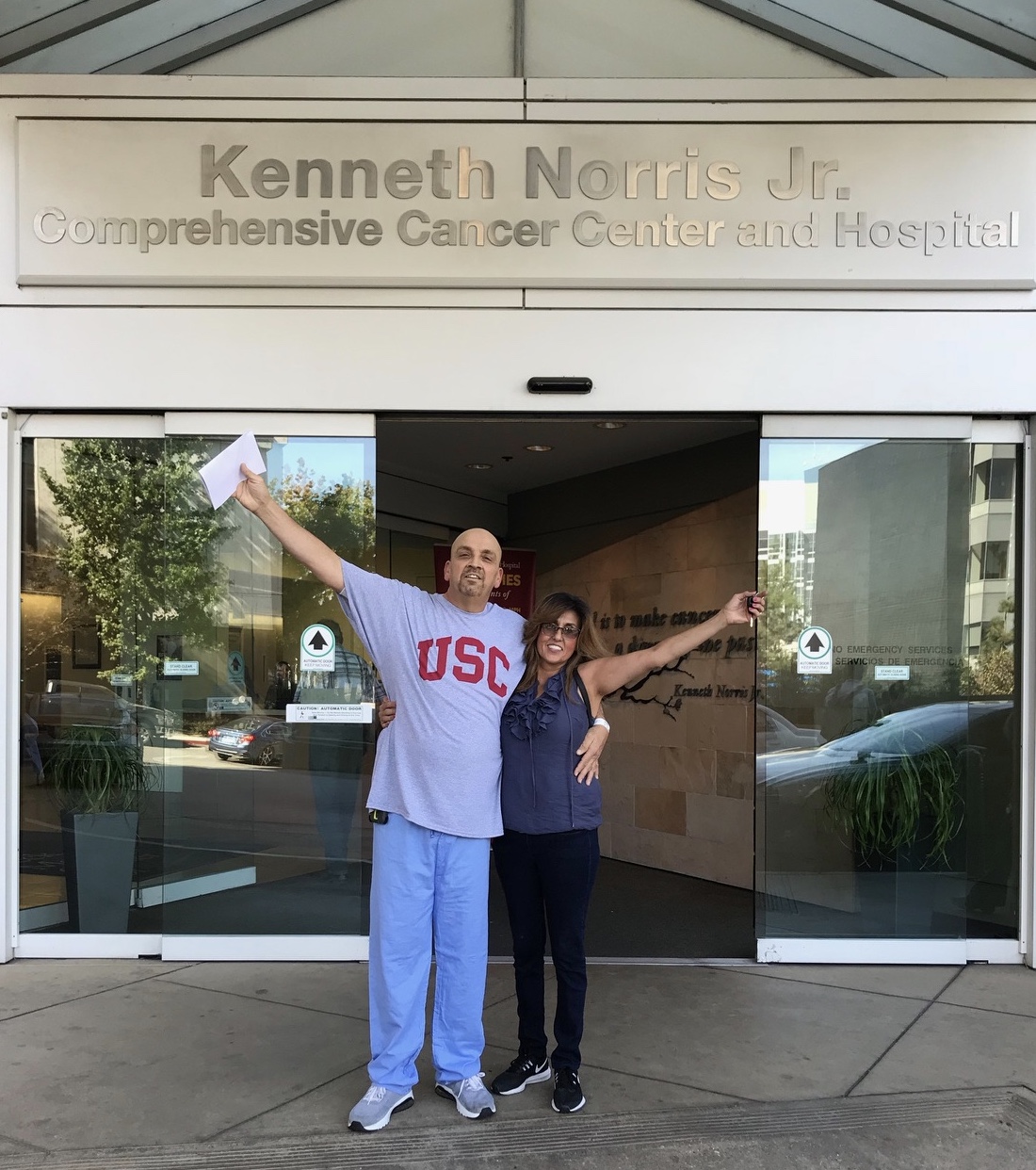
“It was like a five, 10-minute span that I kind of [said] ‘aww poor me’,” Clark said. “But you know what, nah, not poor anymore. There’s worse off people in the world that aren’t even sick. I’m going to get better, God’s going to take care of me.”
Clark said part of his optimism comes from the support he’s gotten through the cancer society, leukemia lymphoma society, grants and donations. It’s surprising to see so many people go out of their way to do good for others.
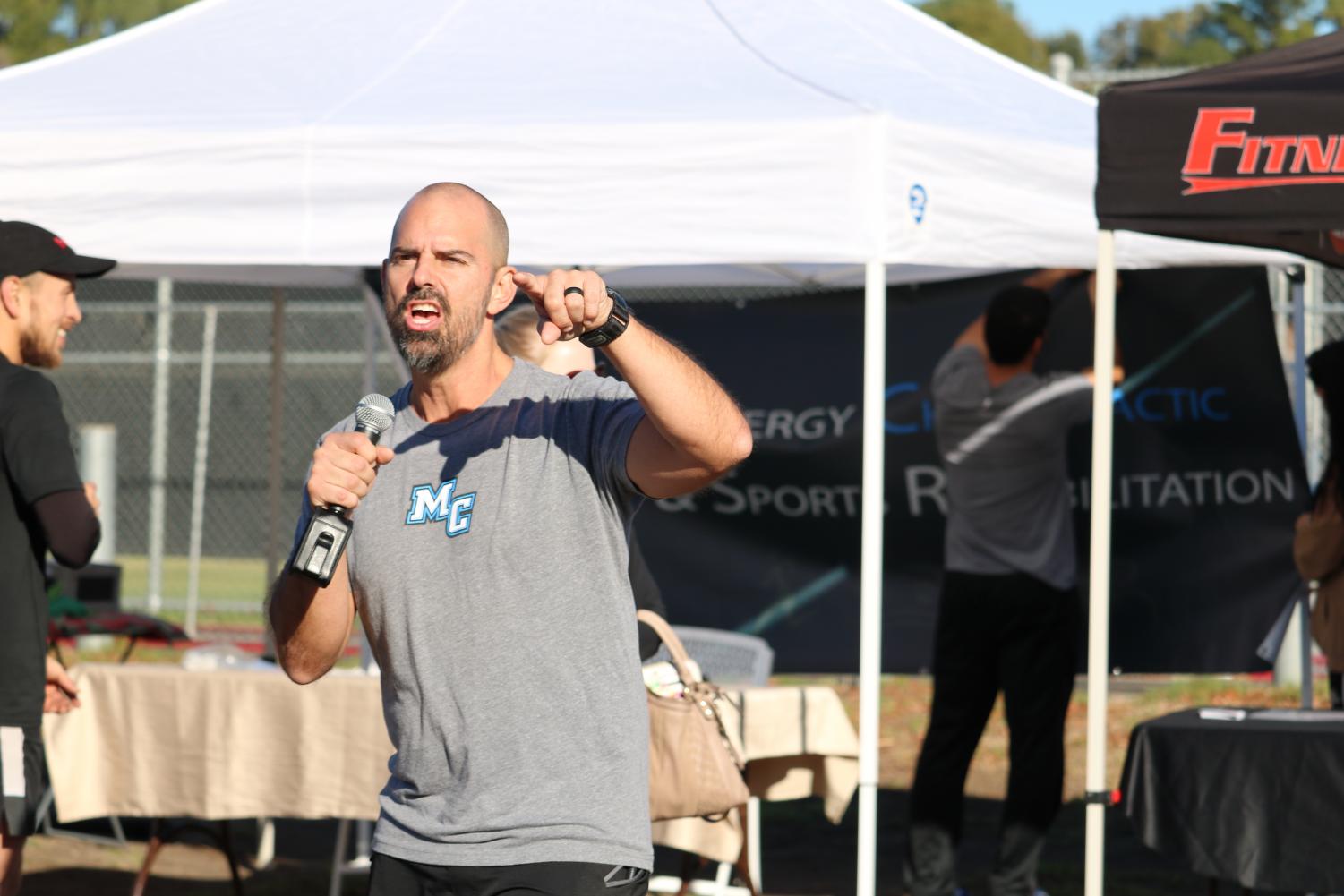
Jeff Kreil, the FLEX Club advisor, is one of those men that Clark attributes for his unwavering support. Kreil thought of using the Raider Challenge as an awareness campaign for the bone marrow registry and marketed it hard this year. They tried to reach their highest registry total since 2014, when they first started working with Be the Match.
“It’s bigger than this,” Kreil said, gesturing to the obstacle course. “This is cool, it’s great, but it’s bigger than this, and that’s what we’ve always tried to impress upon people.”
Since working with Be the Match, his eyes are open to how many more people this disease affects.
“It’s what gets me up in the morning every day, man,” Kreil said. “You know, we’re doing the right thing. Like all the work, all the effort, all the hours, it’s all worth it. It’s amazing and it’s awesome.”
Kreil worked with Be the Match representative Al Gomez to duplicate the success this year. Gomez said when you think about the numbers, it’s pretty remarkable the impact an event like this can have. Each year, since 2014, they sign up approximately 25 people per event. Twice a year, for five years, that is 250 potential matches that can save a life.

“It’s all towards the efforts of helping patients get a second chance at life,” Gomez said. “You know, they’ve gone through every treatment option they can, they have no match in their family, and this is their last hope.”
Their goal is to have equal outcomes for all patients, regardless of ethnicity. This is difficult to accomplish because ethnic groups have fewer donors on the registry, limiting their chances of finding a match. It’s even more difficult to find that match when factoring in mixed ethnicities among lineage.
“It’s very hard, blood type has nothing to do with it,” Gomez said. “We’re taking specific markers and seeing if two complete strangers are genetic twins on a cellular level. Essentially like they have the same genetic thumbprint.”
For that reason, Gomez stressed getting as many people to sign up as possible. The difficulty of landing a match is so high that he hopes to cast as wide a net as possible to meet that demand.
Gomez has a lot more success when community members get involved. He connects with people like Kreil and engages student clubs filled with primary age donors, 18 to 40 years old.
Sign-ups on the registry help doctors, patients and provide hope for families like Clark’s. Clark was lucky enough to find two donor matches from his family, but this is not always the case for blood cancer patients and that is why the registry can be so important for others. Clark must still undergo another round of chemotherapy to kill any existing cancer cells, but for now, he has hope. Finding a match granted him that extra lifeline to grasp onto.
Thanks to Kreil, Gomez, and Be the Match two people have been granted that second chance at life, including the life of a two-year-old boy. They hope to find a third match this year with the Xtreme Raider Challenge and help save another cancer patient in need.




